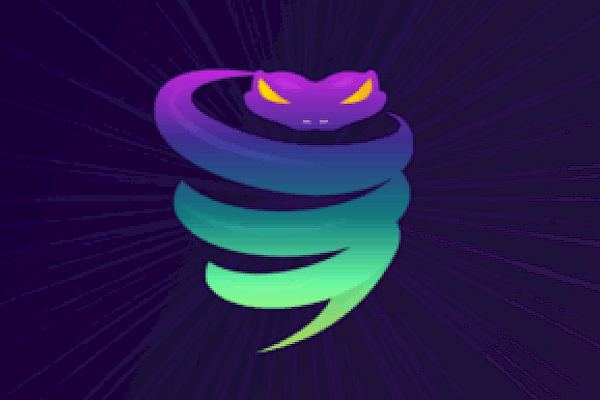Get VyprVPN with a 30-Day Money Back Guarantee
Get VyprVPNIn the News

In the News
Congressional Solution to Net Neutrality Should Focus on Return to Open Access
Net neutrality has had it’s day at the FCC, and the results are anything but shocking. FCC Chairman Ajit Pai has had his sights on eliminating consumer protections, and accountability for Telcos since he was first appointed to his post in 2012. While tech companies are continuing to unify their organizational strength, it‘s an ideal time to start game–planning the next phase.
January 7, 2018
In the News
Open Letter Emphasizes the Danger of Encryption Backdoors
The ongoing resistance to backdoor encryption continued this week, with the “Secure the Internet” initiative. This open letter, launched by Access Now, has already been signed by over 200 activists, organizations and businesses. This letter calls for governments to stop pushing for backdoor encryption and uphold the right to online privacy through strong encryption.
January 12, 2016
In the News
Happy Panamanian Golden Frog Day!
People across Panama and around the world are celebrating Golden Frog Day in honor of the beloved frog that’s a cultural and ecological symbol for the country. The golden frog is the national animal of Panama, and is believed to bring good luck. Many events are taking place today, including the Golden Frog Festival where 2,000 school kids dress like golden frogs and march through the streets!
August 13, 2015
In the News
“Pay for Privacy” Model Discontinued by AT&T
In August, there was quite a stir when United States telco provider Comcast asserted they should be able to charge users more for privacy, endorsing a business model in which privacy is a “luxury” and comes at an additional cost to the consumer. AT&T had been enacting a similar model, charging their Gigapower Internet customers extra money ($30 USD) to opt-out of online tracking.
October 3, 2016
In the News
Paying for Privacy? Comcast Wants Privacy as a Luxury
Earlier this month, there was quite a stir when Comcast stated they should be allowed to charge broadband users a higher price if they wish to protect their privacy. This move was not unprecedented, as AT&T already charges users more if they opt out of the so-called “snoopvertising” on their U-Verse broadband service. Snoopvertising refers to the practice of collecting data on user habits and then selling this data to advertisers to target ads.
August 16, 2016
In the News
Pew Report Illustrates the State of Privacy in America
Pew Research recently released a study about the state of privacy in America, which revealed some very interesting findings. We’ve pulled out a few highlights, and provided related resources with information on privacy issues and ways you can protect yourself online. You can also read the full findings here, to obtain more detail on the stats mentioned below.
January 28, 2016
In the News
Pokémon Go: Gotta Protect Your Privacy
Pokémon Go is everywhere – you can’t go online without hearing about it, nor go out without witnessing people playing Pokémon Go all around town. Along with all the hype has come concern over the app’s privacy, with additional concern around the implications for children’s privacy. Some elected officials have even spoken out on the matter. We’ve previously explored how free apps can exploit your data or violate your privacy, and with a popular app like Pokémon Go it’s essential to be aware that applications can, and frequently do, violate consumer privacy.
August 11, 2016In the News
Poland Enacts New Surveillance Law
Last week, Poland signed some new anti-terror rules into law in an effort to increase security in the country. As with many similar laws, Poland cited terrorism as a reason for the legislation — but it poses some major risks to privacy and civil liberties. The law allows the government to monitor foreign citizens for a period of up to three months without court approval – opening the door for increased surveillance on these citizens.
June 30, 2016
In the News
PrimeTel Partners with Golden Frog to Enhance Online Privacy for Customers
PrimeTel, a telecommunications provider in Cyprus, today announced a new partnership with online privacy and security company, Golden Frog. PrimeTel will offer its subscriber base a special discount for Golden Frog’s VyprVPN, one of the fastest and most respected personal VPN services in the world.
September 17, 2015
In the News
Privacy at Risk: Swedish ISP Responds to Europe’s Data Retention Directive
How far is too far? A current news article brought to light that the European Union’s Data Retention Directive requires Internet, mobile and fixed phone providers to keep customer data for a minimum of six months, and up to two years.
February 14, 2011
In the News
The Right to Online Privacy and How to Achieve It
Online privacy describes a state of keeping your information safe and private from others. This could mean protecting your information from nefarious individuals like snoopers or hacks, from Internet service providers (ISPs) collecting data about you and your online activities, or from a service like Facebook tracking what you do and selling data to advertisers.
May 11, 2017
In the News
What Donald Trump’s Election Could Mean for Privacy and the Internet
Since our founding in 2009, Golden Frog has been fighting for a private and secure, free and open Internet experience for users around the world. With the election of Donald Trump as the next United States President, questions arise around what Internet and privacy policies will be implemented when he takes office.
November 10, 2016
In the News
Privacy Shield Data Transfer Agreement Adopted by US and EU
The Privacy Shield, a data transfer agreement between the United States and the European Union, went into effect today as the European Commission formally adopted it. The previous agreement in place, Safe Harbor, was invalidated over 8 months ago due to concerns the EU had about US surveillance.
July 11, 2016
In the News
Proposed Law Could Increase Internet Censorship, Decrease Privacy in Brazil
A report was recently released by the Brazilian Commission of Inquiry (CPI) regarding Internet-related bills. Within the report are recommendations for legislation governing cybercrime, including seven bills. These recommendations are raising major concern – and protest – from privacy activists around the world.
January 31, 2016
In the News
Pure Lies: PureVPN’s “No Logs” Claims Invalidated By Recent FBI Case
News broke this week that VPN provider PureVPN is lying to consumers about how it keeps logs, specifically claiming it doesn’t log when it actually does. The story serves as an urgent reminder that research and common sense must be used in order to select a credible virtual private network (VPN) service.
October 9, 2017
In the News
reddit Gives Every Employee a VyprVPN for Business Account for Secure, Private Online Communication
Golden Frog, a global privacy company, today announced that reddit, an online community where users submit, vote, and comment on which stories and discussions are important, has provided its employees with VyprVPN for Business accounts. VyprVPN, a fast and reliable personal VPN, provides reddit employees with secure, encrypted Internet connectivity.
July 21, 2014
In the News
Russia Blocks LinkedIn for Violating Data Storage Law
LinkedIn was officially blocked in Russia this Thursday, as they were found to be in violation of a Russian data storage law. The law, passed in 2014 and enacted in September 2015, requires that websites store data for their Russian users on local servers within the country.
November 16, 2016
In the News
Russia Building Its Own Great Firewall with Help From China
It’s being reported that Russia is working on it’s own “Great Firewall” – a reference to the mechanism China uses to filter and censor their Internet. Russia has been working with China to implement some aspects of the Great Firewall, to maintain control over their flow of information and enable telecom companies to comply with recently-passed Russia Internet laws.
December 12, 2016



